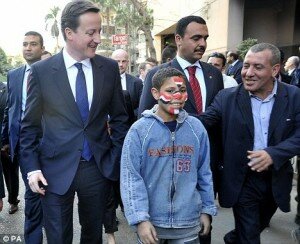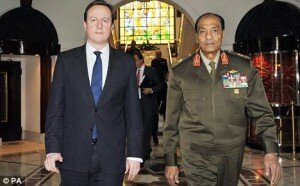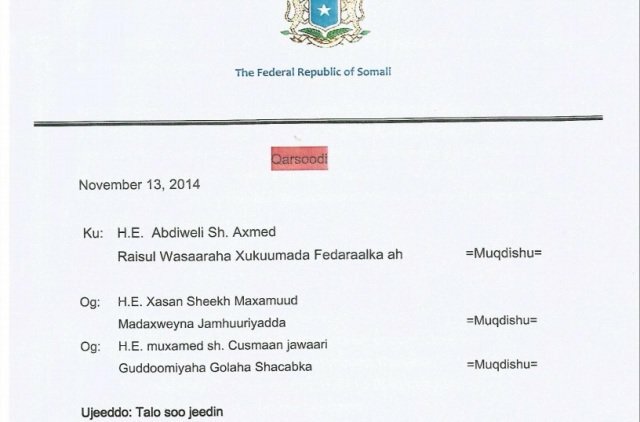Cameron becomes first leader to visit Egypt since uprising brought down Mubarak

David Cameron flew into Cairo today in the first visit by a world leader to Egypt since a popular uprising forced president Hosni Mubarak out of office 10 days ago.
The Prime Minister diverted the start of a planned tour of the Gulf region to hold talks with the military leadership in a bid to help ensure a ‘genuine transition’ to civilian rule.
And as a wave of protests continued in other countries, he condemned the ‘completely appalling’ violent repression carried out by the Libyan regime of Colonel Gaddafi where hundreds are feared dead and injured.
Speaking on the flight to Cairo, Mr Cameron said: ‘This is a great opportunity for us to go and talk to those currently running Egypt to make sure this really is a genuine transition from military rule to civilian rule and see what friendly countries like Britain and others in Europe can do to help.
‘I am particularly keen about being able to get to Egypt and to be one of the first people there.’
Mr Cameron is due to hold face-to-face talks with the head of the armed forces supreme council, defence minister Mohamed Tantawi, as well as the country’s prime minister Ahmed Shafiq.
Part of his agenda will be a call for the lifting of emergency laws which have been in place for more than three decades.
Meetings with a number of figures from the anti-Mubarak opposition movement have also been arranged, although they will not include representatives of the Muslim Brotherhood – the banned Islamic group which is thought to have widespread public support.
‘What is so refreshing about what’s been happening is that this is not an Islamist revolt, this is not extremists on the streets; this is people who want to have the sort of basic freedoms that we take for granted in the UK,’ Mr Cameron said.
Cairo was added at the 11th hour to the itinerary of a long-planned trade-centred tour of the Gulf region, following the revolution and a wave of similar uprisings in other countries.
Mr Cameron has repeatedly said trade must be a top priority of Britain’s foreign policy in a bid to use overseas contracts to help push the country out of economic trouble.
Recent events have shifted the focus towards political reform – although he insisted that issue was of fundamental importance to both economic ties and security efforts.
‘My argument is that the process of political reform and economic reform – with a real opportunity now to make more progress does not run counter to those other two objectives – it actually goes with those two objectives,’ Mr Cameron said.

‘Greater openness and reform can, in time, lead to greater stability and stronger relationships.’
The Prime Minister is expected to use a speech during his Gulf tour to set out his wider philosophy on the issue.
Mr Cameron spoke last night with the King of Bahrain Hamad bin Isa Al Khalifa to offer support for a process of ‘national dialogue’ the royal family has initiated after days of protests there. His tour is not due to take in the Gulf state.
Mr Cameron’s first meeting was with Field Marshal Tantawi.
He told the military leader: ‘We are very keen to be helpful in terms of the transition your country is going to be making. The most important thing for us is to hear how we can help this transition be successful.
‘As old friends of the Egyptian people, we come not to tell you how to do things but to ask how we can help you do what we know you want to do.’
Comments
comments
 Calendar
Calendar




































